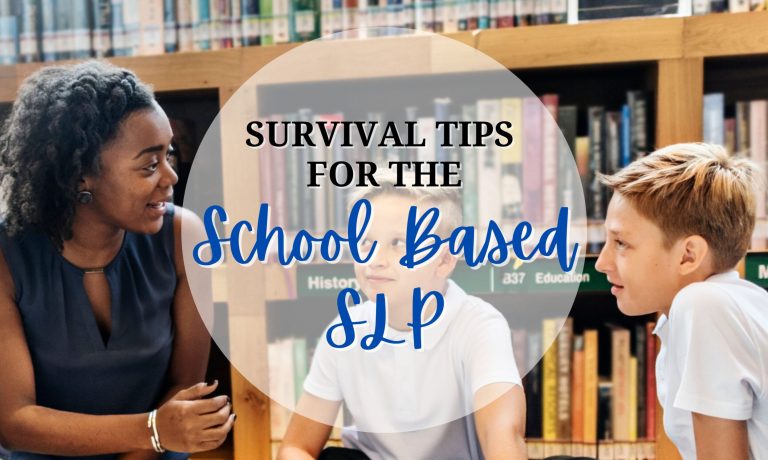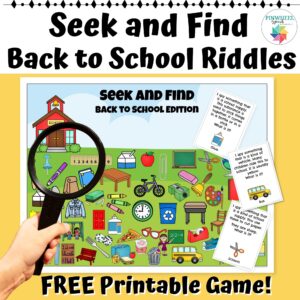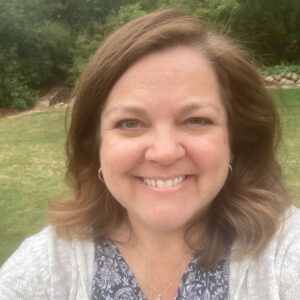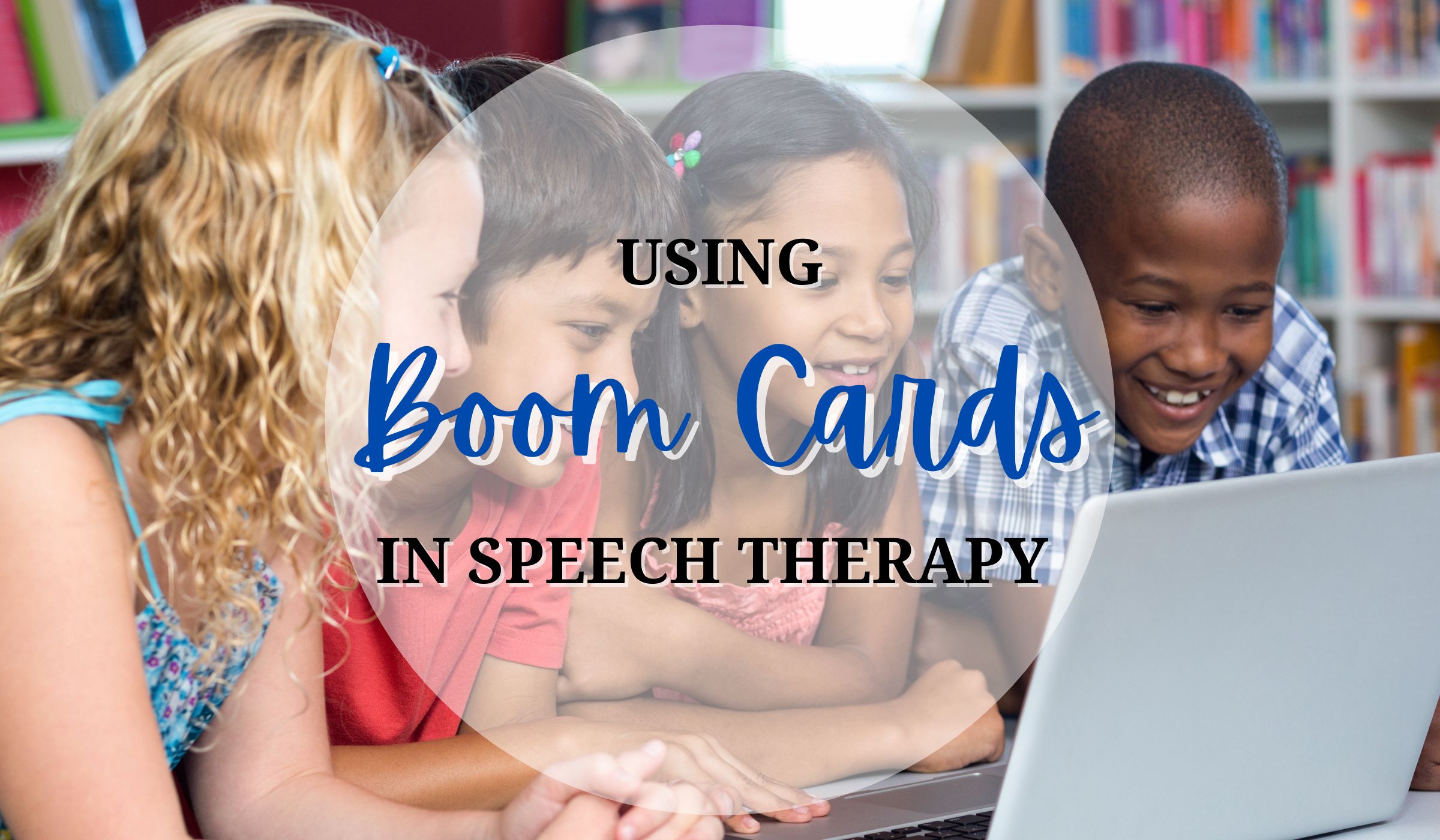
Are you a School-Based SLP?
After more than 25 years as a Speech and Language Pathologist, I have worked in quite a few different settings (about me). I started out my career working in an outpatient clinic setting at the Bill Wilkerson Center in Nashville, TN. When we moved back to Colorado, I had the opportunity to work in a preschool setting for 7 years. After that, I had a small private practice out of my home while my boys were young. I also contracted with a private clinic for four years. Most recently, I was a school-based SLP at our neighborhood elementary school for 7 years. As I reflect on all of these experiences, I realize that the school setting was the most challenging one for me. With a large caseload and a wide variety of students, it was a steep learning curve (even for a seasoned SLP). I often felt like I couldn’t do enough for the students who needed the most support in the classroom. This blog post includes some of my favorite tips for school-based Speech Language Pathologists (SLPs).

Find Your Tribe
It is easy to feel like a lone wolf when you are working as a school-based SLP (Speech Language Pathologist). Many times, you are the only SLP at your school or even in the entire school district. I was lucky to have many other SLPs in my district. We met monthly to discuss students and share challenges. I also found support from fellow team members at the school. To this day, many of my closest friends are former coworkers (SLPs, OTs, special education teachers, my SLPA). It is also important to collaborate with teachers as much as possible. This includes SPED team members, classroom teachers, classroom assistants, ELL/ESL teachers and reading specialists at your school. Most importantly, I couldn’t have done it without my SLPA (Speech Language Pathology Assistant), Kendra. Together, we were able to provide quality services to our large caseload. My SLPA helped me to gather data, screen kindergarteners, and provide much needed in-class support. I realize many SLPs do not have an SLPA and I am so thankful that I had Kendra’s assistance for so many years.

Build Connections
At many schools, teachers are encouraged to take the first two weeks to build community in the classroom. The best teachers continue to include community building activities all year long! I strongly believe it is equally important to build a positive climate and culture in the speech room. We are constantly challenging our students to take risks as they practice new speech and language skills. It is critical to slow down and focus on building positive relationships and connections with our students before we expect them to take these risks. Icebreakers are an excellent way to get to know your students at the beginning of the school year and throughout the year. When you get to know your students, you will also be better able to create engaging activities based on their interests. It is also important to include your students’ input in classroom expectations. This helps to create a safe environment where your students will continue to grow and learn. Learn more about Building Connections in this blog post.
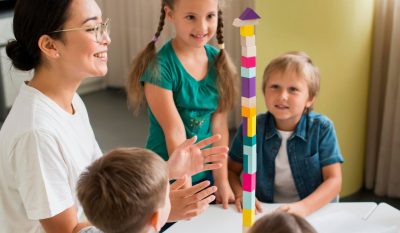
Choose Versatile Activities
It is not uncommon for school-based SLPs to have 50 or 60 students on their caseloads. In fact, during my school SLP internship I had close to 100 students on my caseload! With all of the meetings, assessments, and reports to complete, it is nearly impossible for school SLPs to fit everything into their schedule without forming mixed groups. Mixed groups can be challenging but they can also be a lot of fun! In my opinion, the best activities for mixed groups are versatile and open-ended so they can be used to target a wide variety of speech and language skills. Open-ended activities can easily be adapted to meet the needs of all the individuals in the group. You can learn more about choosing activities for mixed groups here. Here are a few of my favorites:

Efficient Data Collection
When I was a private SLP, most of my students were seen individually so I was able to collect data every session. On the other hand, when I was a school-based SLP, it was nearly impossible to collect data for every student during group sessions. After sharing my struggles with other SLPs in the district, I settled on a 3:1 model of service provision. My SLPA and I efficiently collected necessary data on each student during informal progress monitoring sessions once a month. We relied on progress monitoring tools and busy picture scenes to collect spontaneous speech and language samples each month. You can learn more about the 3:1 model on the ASHA website. Learn more about how I use busy picture scenes here.

Take Time to Recharge
With large caseloads and limited time, it is easy to lose yourself in this job. When you are at work, don’t be afraid to set boundaries. Close the door. Take a lunch break. Go for a short walk. Learn to say NO to additional responsibilities that are not part of your job description. In addition, it’s important to establish boundaries between work and personal life to prevent burnout. This job can easily creep into your home life when you are bringing work home. There will always be more reports to write and lessons to plan. Take time to play, do what you love, and recharge on the weekends and during breaks. For me, this means carving out time to go for walks/hikes and connect with nature. It means having lunch with friends and spending time in prayer. It also means weekly dates with my hubby and game nights with my teenage boys. Don’t be afraid to take time for yourself and take care of your own needs. You can’t pour from an empty cup.
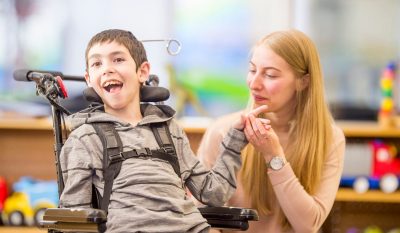
Remember Your Why
There are many days when I feel unappreciated and discouraged as an SLP. When I am having a hard day, I try to dig deep focus on my WHY. I think about what made me decide to become an SLP and the students who continue to inspire me. I keep a collection of cards and drawings that my students have given me over the years in a “smile file” in my desk. It helps me to remember my WHY when I pull out one of their thank you cards. I am honored to be a part of each child’s story and proud to say that each child is a part of my story. In addition, Pinwheel Speech has given me the amazing opportunity to support other SLPs all over the world. It has been such a joy to share tips and engaging activities with so many of you! You all have become a big part of my WHY! (see MY STORY here).
Your Turn!
Despite the challenges, being a school-based SLP has been one of the most rewarding jobs. I prefer working with my students in their natural environment. There is nothing better than watching a student generalize new skills into the classroom or demonstrate new social skills with their peers. I have also made so many wonderful friends in the schools and I wouldn’t trade the experience for anything! I would love to hear from you! What are your biggest challenges? What do you love about being a school-based SLP? Comment below!
Free Seek and Find game
Thank you for stopping by! I am offering this FREE Back to School Seek and Find guessing game when you sign up to join the Pinwheel Speech community. Simply click on the photo above to access your FREE guessing game!
